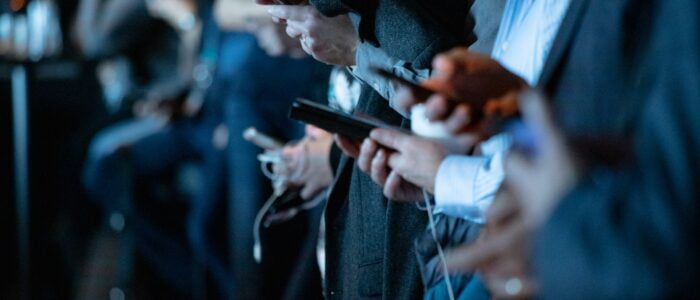What really matters to me?

I seem to be constantly doing battle with Facebook and other realms of social media to escape the advertising and distracting video clips I didn’t want to watch. I get about three posts from genuine friends and then I’m stuck in a world of advertising and links, which I’m told relate somehow to my search history, as the algorithms try to distract me and make me spend money.
Of course, the problem is not just with social media. So often our attention is directed by news media and newspaper editors to areas they consider ‘in the public interest’. (Of course there should be a strong distinction made between what the public may find interesting and what is really in the public interest – we can all be a little bit nosy and find a macabre fascination with things that are none of our business.)
I may be a little late to the game here, but my understanding is that the aim of media organisations is not necessarily to sell me something directly but to be able to hold my attention for an extended period of time. This clickbait and distraction approach to news coverage results in misleading headlines and, of course, often misleading reporting. If the game is to keep me engaged in their platform, and their aim is to keep my attention where they direct, then there is as much an interest in distracting me with the trivial as there is in distracting me with the controversial.
Last week, for example, I found myself reading a cover story in a news magazine on the proliferation of SUVs. Now, there is a point to be made about fashion and the cars we opt for, and how that affects the environment, but it is surprising that with wars going on across the world, flooding, economic difficulties and persecution of people with faith, that this article held the front page.
It is the consideration of these things that has led us at FaithAction to start to ask the question ‘what really matters to us?’ What is important to people of faith and how does faith shape what we are passionate about? We are also asking whether the things that we are concerned about, the areas of interest we have beyond what goes on outside our front door, are any different to those of people who don’t adhere to faith.
I strongly believe that being people of faith gives us a broader interest in what is going on in the world, as well as a concern and often an involvement in things beyond our immediate circumstances. I base this on the idea that faith gives a point of identity and connection with people who are not our immediate friends or family. Within the Christian tradition we speak of being the children of God, we are thus united in a familial way with people we do not even know by having a common Father.
I posit that Facebook perspectives and connections gives us a broader interest than is often recognised by those who serve up news items on traditional and social media. My faith community, based in east London, has had a point of connection for the past 30 years with the small West African nation of Sierra Leone, receiving news and information from the friends we have there and causing us as a community to have a care and an interested in what is happening beyond what we hear through the media. Without those connections we wouldn’t hear much from such a small place, and it is often difficult to find out what is going on in other nations where those connections haven’t been made. The Prime Minister’s Envoy for Religious Freedom, Fiona Bruce MP, has been doing a significant job of making us aware of persecution going on throughout the globe. But this feels the exception than the rule.
Over the next few months, as we in the UK get on an election footing, the strategists and media experts will seek to work with parties to gain voters’ interest and to identify the issues that matter. These are often called battleground issues. We have often seen that this can be a time of polarisation as things which are quite complex are simplified for the sake of a sound bite. The problem with this is we don’t often get a real discussion, and therefore can’t explore the nuances of a problem and the consequences of any solution that may be brought to bear.
To give an example, I have no doubt that various narratives around immigration will be part of this election campaign. Immigration and integration may be areas of interest for those of faith, but that does not necessarily mean that they are against immigration. However, the sense is that if you say you are interested in immigration it means you are against it.
Therefore it is important that we hear from you!
At FaithAction we are putting together an online survey about what issues and policy areas matter to people of faith. We think that election year is a unique time to gather this information and to see if policy suggestions and headlines match the interests that we find in people of faith. It will also be interesting to see if an individual’s faith has an obvious effect on their political interests.
What are the areas we should ask about? What should we put on our survey? If you have some thoughts or even just some encouragement then do e-mail us at [email protected]
We would like to see if the parties and individual politicians are open to responding to what matters to us; are they ready to hear what’s on our agenda as people of faith?



